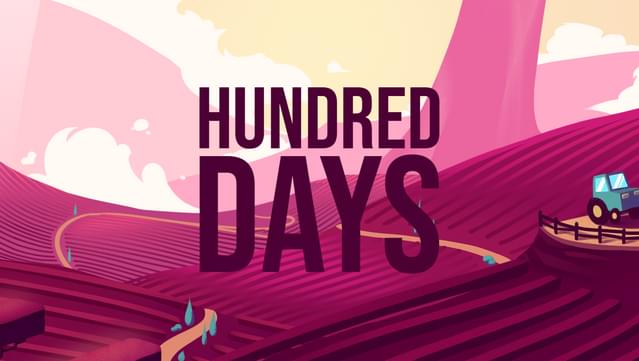Hundred Days: A Game About Grapes

Luca Ferro ‘27 / Emertainment Monthly Staff Writer
Making wine is a confusing, expensive, and difficult process. An indie game developed and published by Broken Arms Games, Hundred Days, takes the player through the process of managing a winery and all the various tasks associated with it. The game originally was put on early access back in 2020, and was officially released last year, but after some major updates and a recently released DLC, this seemed as good a time as any to talk about it.
Hundred Days has a story mode, an endless mode, and a challenge mode, but when the story is complete the game transitions into endless mode anyway. The main gameplay loop consists of growing and caring for grapes, processing them into wine, and selling that off to make a profit. Actions are used by placing Tetris– like blocks onto a grid, with actions taking up a pattern of space that can be organized and adjusted to prioritize certain objectives. As the game progresses, the grid can be expanded, various technologies and techniques are developed, and different kinds of grapes can be grown in different areas. All the while, the player must be careful of not overextending and going bankrupt, as each addition increases the maintenance and operation costs of the vineyard.
The central gameplay loop is certainly interesting, and the game encourages the player to branch out and experiment with what combinations work just right to produce the perfect, and thus most profitable, batch of each wine. Additionally, the various technologies and additions to the vineyard can change up the game entirely, allowing for different styles of play within a similar framework. However, the game does have a fair share of problems. For one thing, the storyline is pretty mediocre, and though I’m sure no one was expecting a masterpiece of a plot from this game, it gets boring really quickly. Characters have very awkward dialogue, the story events often interrupt the flow of the gameplay, and the story itself seems to end rather abruptly and cheesily, almost like it was tacked on at the very end. Additionally, and somewhat related, the game doesn’t do a great job of explaining some of the more detailed mechanics to the player, such as what fame, a gameplay quality that increases as you complete certain tasks, really does or how exactly to view the information in the journal. Even when the story mode is meant to introduce these options, it again often falls flat and gets caught up in its very weird soap opera plot rather than teaching the player how to play.
Despite all of this, Hundred Days is still an extremely interesting game, and one that should at least be considered when wanting to try something new. If a player is willing to put some thought into it, the mechanics do open up eventually and reveal an intriguing core of gameplay. Additionally, the game deserves major props for bringing a super unique concept to the medium, even if the story was disappointing at times.